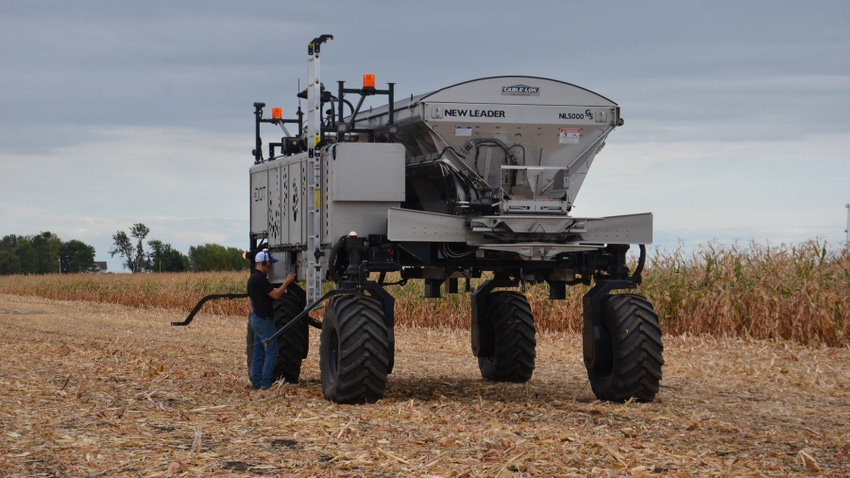
Where is agriculture headed in the next five years? What developments will shape the future of the ag industry? Which technologies will dominate?
From his vantage point as president and CEO of AgriNovus Indiana, Mitch Frazier has a unique view of what lies ahead for agriculture. His background in ag business and the machinery industry sharpens his view of which trends could lead agriculture into the next decade.
Frazier shared three key trends that could have a profound impact on what agriculture looks like tomorrow. He presented these observations to the crowd gathered to recognize student achievements in the Student Soybean Innovation Competition at Purdue University. AgriNovus Indiana joined the Indiana Soybean Alliance as a sponsor in 2023.
1. Biofuels are coming. Ethanol and biodiesel have been here for a while, and ethanol sales continue to grow. However, Frazier believes renewable biodiesel could take biofuels to a whole new level.
“Biofuels will reenergize the energy sector,” Frazier said. “Biofuels based on plant sources of energy have a role to play in the future.”
In fact, Frazier pointed out that recently, Chuck Magro, CEO of Corteva Agriscience, indicated he expects to see as much as a tenfold increase in the amount of these fuels produced for the ag and aviation industries by 2035.
Leaders of John Deere note that electricity is not there yet for large ag tractors, such as the Deere 8R Series, Frazier added. Instead, those leaders are eyeing renewable diesel fuels for large equipment.
2. Labor challenges spur automation. “Labor challenges in agriculture and in industry will drive innovation,” Frazier predicted. That’s the second megatrend headed this way.
“Everyone is facing the labor shortage,” he said. He believes that’s one reason why John Deere purchased Bear Flag Robotics in 2021 — so the company could further develop the concept of an autonomous tractor. Bear Flag was operating fleets of large, autonomous Deere tractors doing custom tillage work for large California growers.
Other companies are moving in a similar direction, he said. Case IH bought Raven two years ago and is leveraging its technology to develop autonomous options for various machines. Only one machine operated in the autonomous test area at the Farm Progress Show in 2022. For the 2023 show in Decatur, Ill., show officials expect five or six players to bring machines for farmers to watch in action.
3. Ag tech forces combine. “Ag tech consolidation will accelerate, continuing at a faster pace,” Frazier said. This trend is already underway, and will pick up in intensity, he believes.
John Deere purchased Kreisel Electric in Austria in 2021, setting the stage to beef up use of batteries in equipment. Big tractors may not be ready to go electric, but smaller versions might be. Deere introduced its first all-electric lawn mower earlier this year.
Meanwhile, consolidation isn’t just happening on the energy and machine fronts. Corteva purchased Stoller, a leading biologicals company based in Houston, Texas, late in ’22. It’s another indication that this chemical giant is committed to biological controls, and other companies are following suit.
“People are investing in ag tech, and they will keep investing,” Frazier says. “The return on investment to investors in this field has been above average lately. Look for more growth.”
About the Author(s)
You May Also Like




